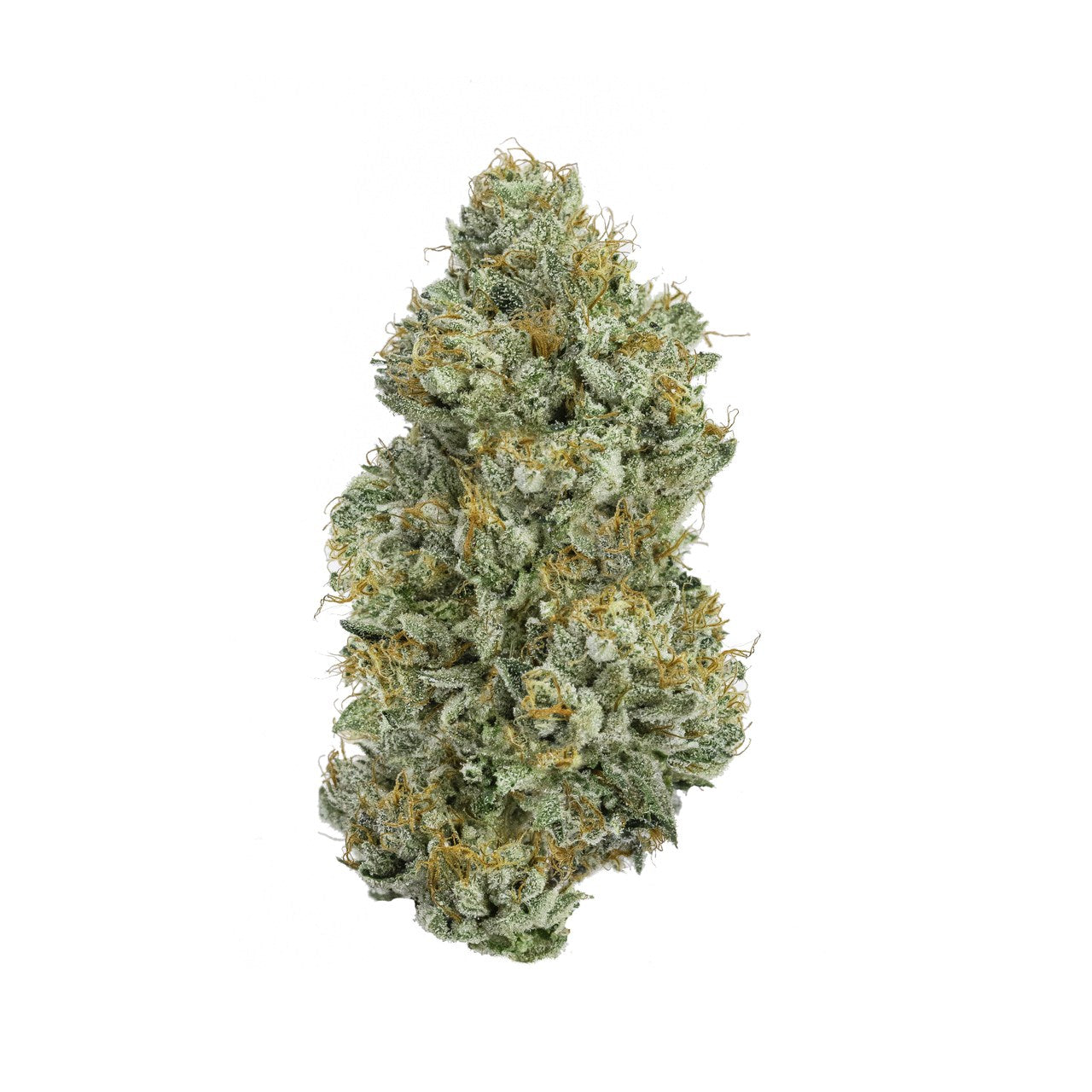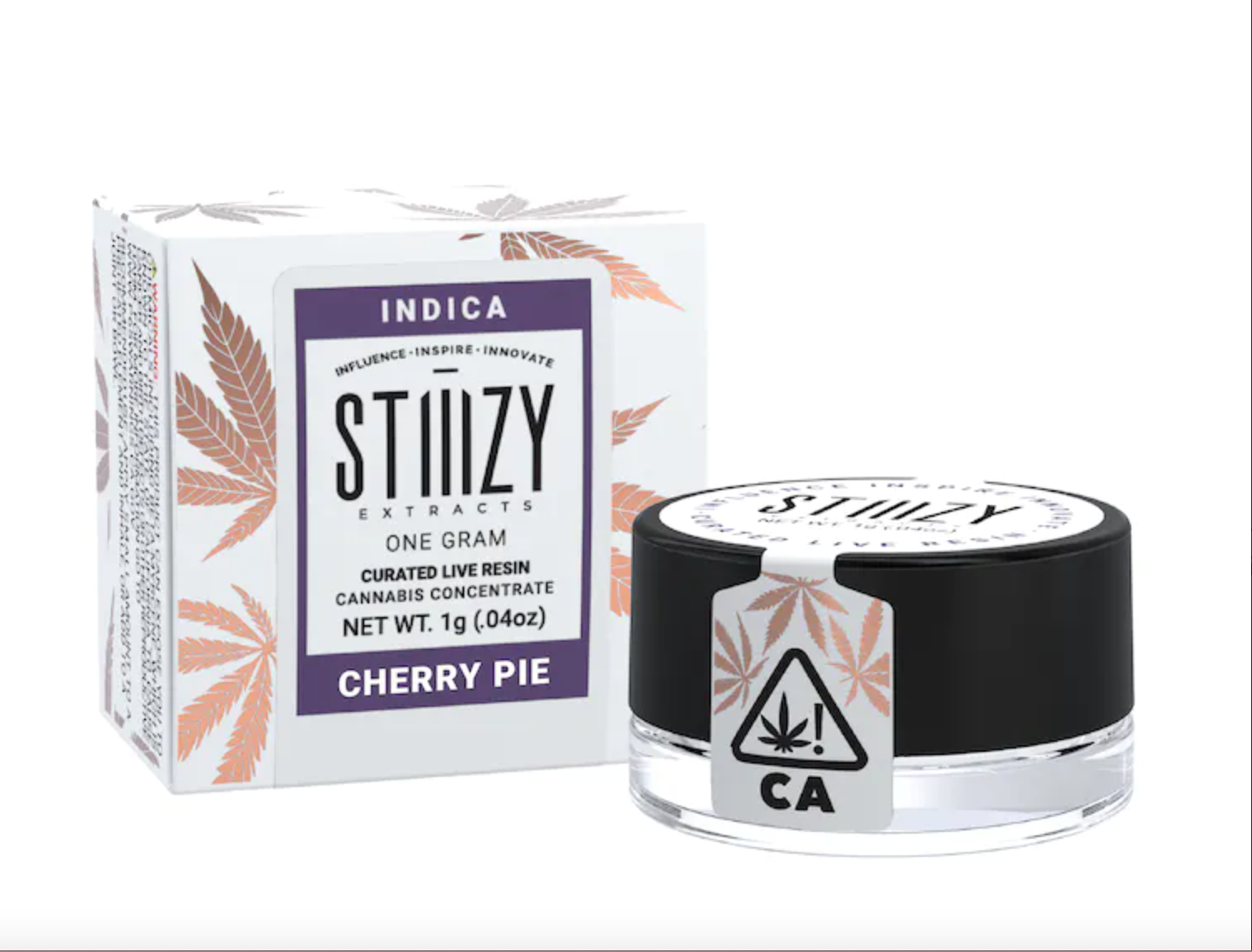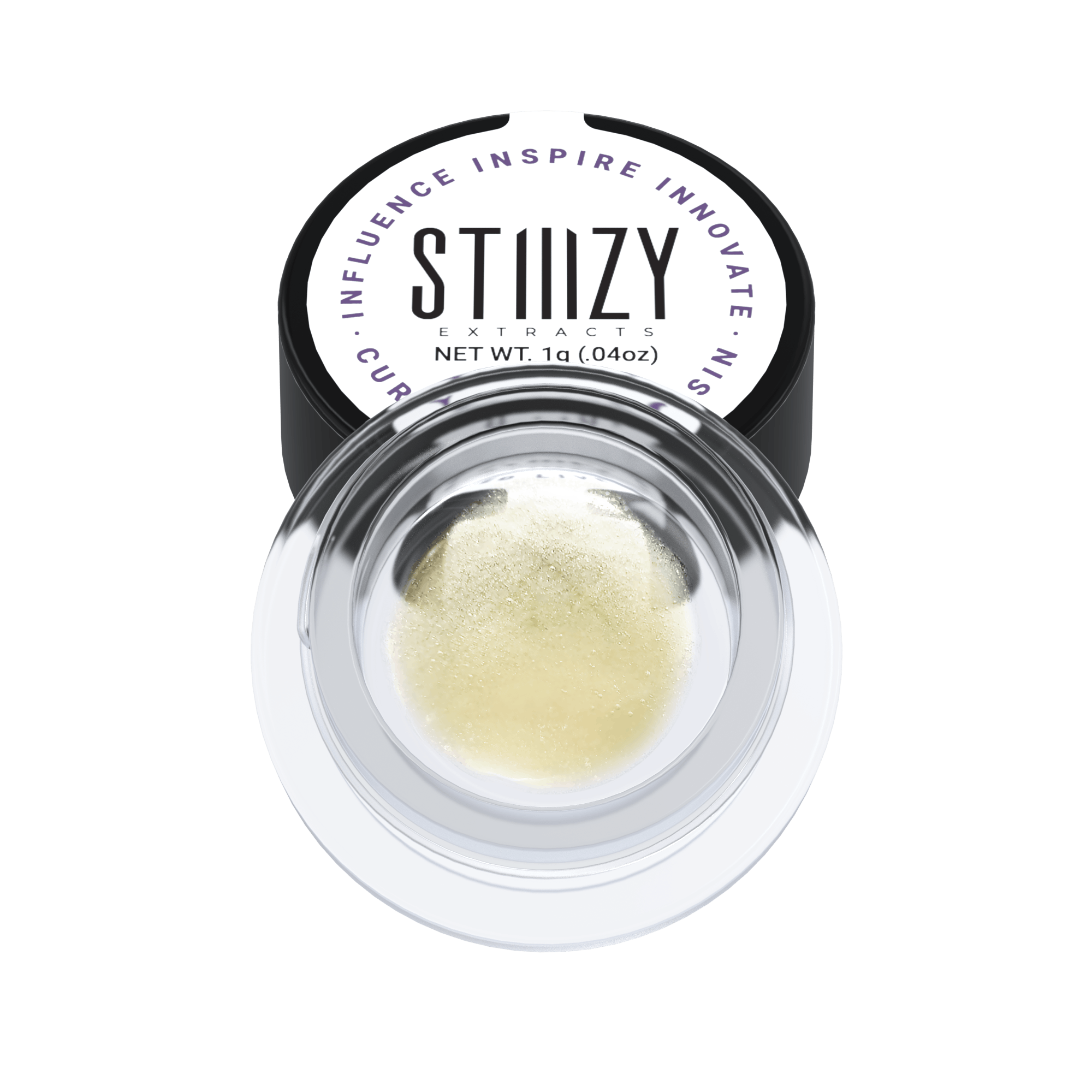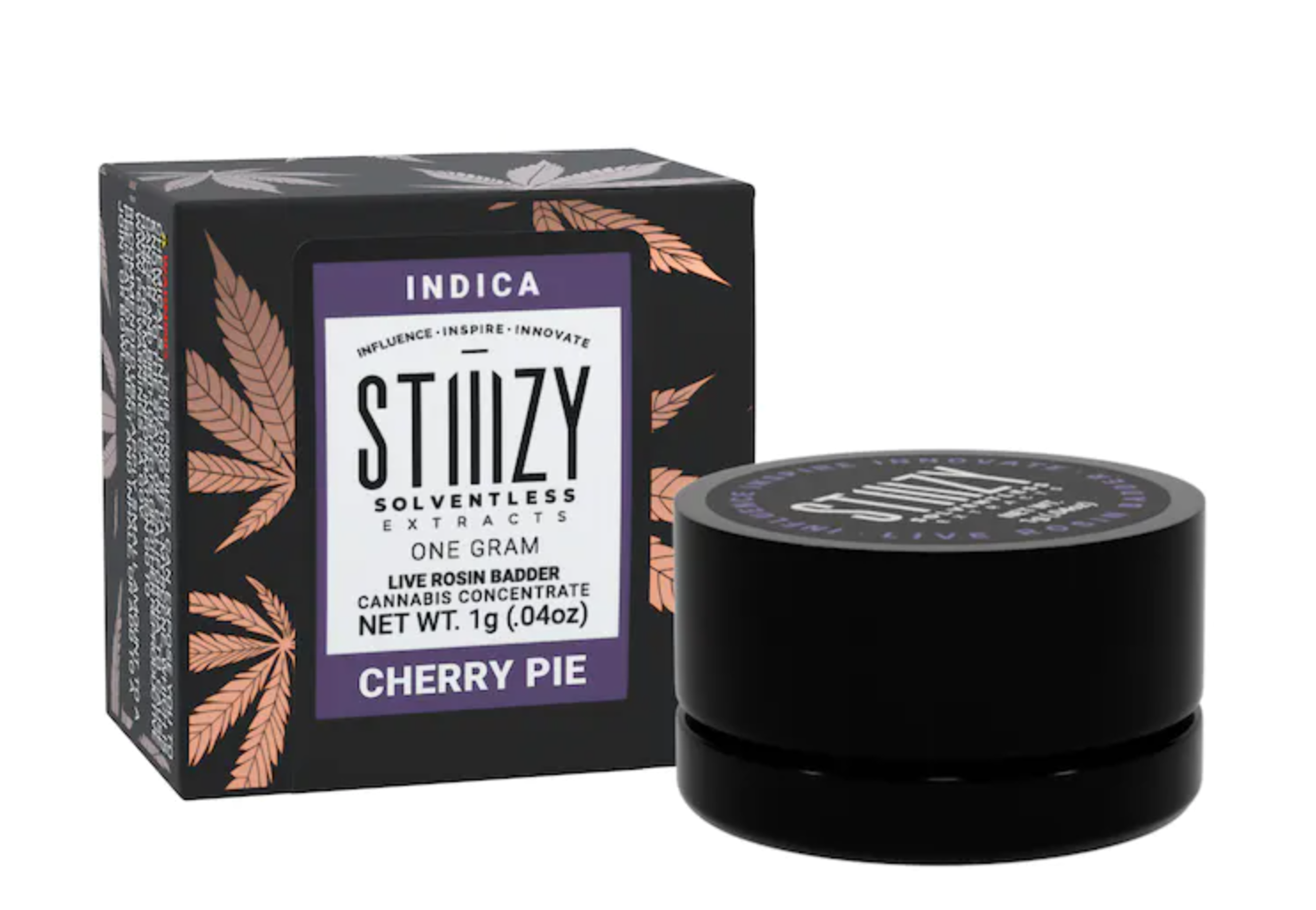Cherry Pie Strain Guide: A Cult Classic That Still Delivers
Cherry Pie isn’t just another hybrid cannabis strain on the dispensary shelf. In a market full of flashy new crosses and hype-driven names, Cherry Pie continues to hold its ground. With West Coast roots and undeniable visual appeal, this cultivar remains a staple for those who value heritage, consistency, and a standout aromatic profile.
From its origins with California’s Cookie Fam to its role in shaping modern genetics, Cherry Pie proves that staying power isn’t just about THC. It’s about legacy.

Genetics: A Cookie Fam Original
Cherry Pie is the result of crossing F1 Durban Poison and Granddaddy Purple, two legendary strains in the cannabis lineage. First bred in the early 2000s by Ken “PieGuy” Dumetz of Powerzzzup Genetics and Jai “Jigga” Chang, it helped lay the foundation for the broader Cookie Fam genetic library.
If you’ve tried Gelato, Sunset Sherbert, or GSC, you’ve experienced part of the family tree that Cherry Pie helped build. It carries Granddaddy Purple’s iconic structure alongside the density and resilience of Durban.
Cherry Pie Strain Appearance: Dense, Sticky, and Colorful Buds
Cherry Pie buds are compact and resin-rich, often displaying forest green leaves accented by bright orange pistils. Under optimal growing conditions, especially with cooler nighttime temps, some phenotypes reveal deep purple hues.
The thick trichome layer reflects careful cultivation and maturity. Growers note Cherry Pie’s bushy structure and wide lateral branching, which makes it suitable for low-stress training methods.
Cultivation Tips for Cherry Pie
Cherry Pie performs well both indoors and outdoors, though it thrives in warm, Mediterranean-style climates when grown under natural light. Indoors, expect a flowering time of 8 to 9 weeks. Outdoor harvest typically falls in late October.
This strain requires attentive care and stable conditions but rewards growers with visually striking buds and consistent results.
Grower Tips:
-
Training: SCROG or LST to improve light distribution and maximize yields.
-
Environment: Maintain moderate humidity during flowering to reduce mold risk.
-
Harvest cues: Watch for cloudy trichomes and slight ambering for peak maturity.
Cherry Pie Terpenes: Loud and Layered
Cherry Pie features a well-rounded terpene profile that leans into both of its parent strains.
Dominant Terpenes:
-
Myrcene – Earthy and herbal, often present in high amounts.
-
Caryophyllene – Adds a peppery, woody sharpness.
-
Limonene – Brings in citrusy, zesty top notes.
-
Linalool – Contributes a soft floral undertone.
Once properly cured, Cherry Pie presents an aroma that blends earthy base notes with subtle flavor-forward profile. The overall profile evokes baked goods without directly referencing any child-appealing flavors.
STIIIZY Cherry Pie Products
At STIIIZY, Cherry Pie is available in several premium extract formats including curated live resin pods, live rosin badder, and solventless options. Each product is crafted to highlight the cultivar’s unique terpene expression and genetic character.
While we can’t make experience-based claims, Cherry Pie remains a consistently popular choice in California’s adult-use cannabis scene, especially among fans of heritage cultivars.
Why Cherry Pie Still Stands Out
Despite wave after wave of new hybrid strains, Cherry Pie continues to hold relevance. Here’s what sets it apart:
-
Legacy Status: An original member of the Cookie Family’s genetic arsenal.
-
Grower Appeal: Compact structure and signature coloration make it a favorite among cultivators.
-
Consumer Recognition: Often requested by name, particularly among long-time cannabis users.
FAQs
It’s considered moderately challenging. Consistent environmental control and structured training methods yield the best results.
Originally clone-only, but stabilized seed lines are now available through select breeders.
Not as exclusive as it once was, but premium Cherry Pie genetics are still highly valued. Sourcing from trusted cultivators is key.
Yes. Indoor environments offer better terpene retention and climate control.
STIIIZY complies with all applicable state laws regarding the sale and marketing of cannabis products. This content is intended for adults 21+ in jurisdictions where cannabis use is legal under state law. By engaging with this material, you acknowledge that you are of legal age in your jurisdiction.
This content is for informational and educational purposes only. It is not intended to diagnose, treat, cure, or prevent any disease or medical condition. STIIIZY makes no health claims about cannabis products. Consult a licensed healthcare professional before using cannabis, especially if you are pregnant, nursing, or have a medical condition.
Cannabis products may affect individuals differently. Consume responsibly and avoid operating vehicles or machinery after use. STIIIZY disclaims all liability for any adverse effects, legal consequences, or misuse resulting from the use of our products or reliance on this content.
Cannabis laws vary by state and locality. This content does not constitute legal advice. Users are responsible for understanding and complying with their local regulations.
Statements about product effects or benefits are based on general industry knowledge and user experiences. Individual results may vary. STIIIZY does not guarantee specific outcomes.
References to third-party studies, testimonials, or external resources are provided for context only. STIIIZY does not endorse or validate these materials unless explicitly stated.
The views and opinions expressed in this blog are those of the author and do not necessarily reflect the official policy or position of STIIIZY.




